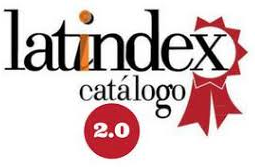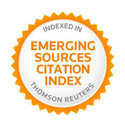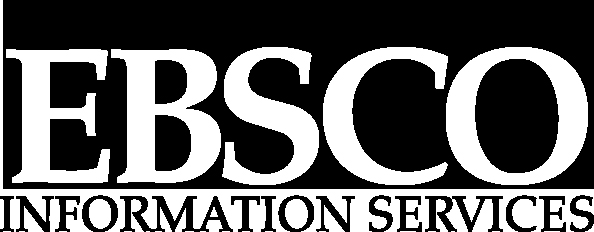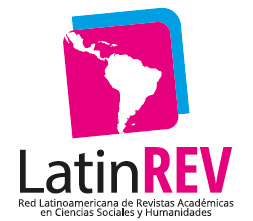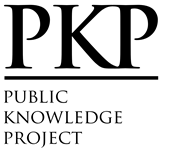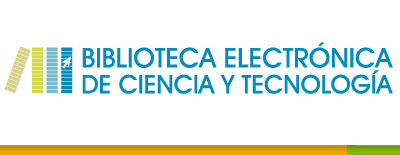Measuring corporate reputation along the value chain of communication companies: a proposal
Abstract
In an increasingly competitive context, the need to learn how interest groups assess companies is on the rise. This means that evaluating corporate reputation (CR) is a crucial task for corporate communications. Although there exist various indexes for measuring corporate reputation, none consider the entirety of the value chain, since most sample only a few stakeholders. Additionally, indexes gauging sector reputation or focusing on concrete economic fields are not widely available. This article is a methodological proposal that presents an Index of Corporate Reputation for Communication Companies (ICRCC), constructed after an analysis of existing academic and company indexes. Our methodological approach allowed us to study, in theoretical and corporate contexts, different measurement indexes that employ dimensions and indicators in implementing their evaluation tools, as indexes usually do. The results of our investigation show our ICRCC proposal broken down into these dimensions and indicators. We conclude that each interested party can have a distinct view of corporate reputation. Segmenting evaluations by stakeholders appears to be the most advisable way to then compare perceptions and elaborate differentiated strategies for each interest group. A strategy that means to improve a company’s corporate reputation must identify the intangible brand values that interest groups care about.
Downloads
References
Aguilera, J. & Baños, M. (2016). Branded entertainment. Madrid: ESIC.
Alloza, A. (2006). La medición continua de la reputación corporativa. En Benavides, J., Fernández, J. and Villagra, N. (Eds.), La ética de la responsabilidad social de las empresas y organizaciones (pp. 183-204). Madrid: Universidad Pontificia Comillas.
Alloza, A. (2015). Aproximación a la reputación y a la responsabilidad corporativa. En Benavides, J. and Monfort, A. (Eds.), Comunicación y empresa responsable (pp. 171-197). Pamplona: EUNSA.
Álvarez, J. T. (2008). Entorno mixto para gestión de reputación e intangibles. En Fernández, M. (Ed.), Comunicación en la sociedad red: la construcción mediática de la realidad (pp. 73-95). Ávila: Universidad Católica de Ávila.
Argenti, P. & Forman, J. (2002). The power of corporate communication. Nueva York: McGraw Hill.
Argenti, P. (2014). Comunicación estratégica y su contribución a la reputación. Madrid: LID.
Arrese, A. & Baigorri, M. (2011). Corporate reputation and the news media in Spain. En Carroll, C. (Ed.), Corporate reputation and the news media (pp. 168-191). New York: Routledge.
Aula, P. & Mantere, S. (2008). Strategic reputation management. Nueva York: Routledge.
Capriotti, P. (2009). Branding corporativo. Fundamentos para la gestión estratégica de la identidad corporativa. Santiago: Andros.
Carrió, M. (2011). Creació d’una nova metodologia multistakeholder per a l’amidament de la reputació corporativa a partir de l’anàlisi de les 5 metodologies de referència: Fortune AMAC, Fortune WMAC, Merco, Coeficient de Reputació Corporativa (CRQ) i RepTrack (Tesis de doctorado). Universidad Pompeu Fabra, Barcelona. Recuperado de http://www.upf.edu/doctorats/en/menutesi/tesis/11.html .
Carrió, M. (2013). Gestión de la reputación corporativa. Barcelona: Libros de Cabecera.
Caruana, A. (2008). An attitudinal measure of corporate reputation. En Melewar, T. (Ed.), Facets of corporate identity, communication and reputation (pp. 197-209). Nueva York: Routledge.
Cortada, N. (2004). Teoría y métodos para la construcción de escalas de actitudes. Buenos Aires: Lugar.
Costa, J. (2009). El DirCom hoy. Dirección y gestión de la comunicación en la nueva economía. Barcelona: Costa Punto Com.
Davies, G., Chun, R., Vinhas, R. & Roper, S. (2003). Corporate reputation and competitiveness. Nueva York: Routledge.
Delgado, V. & Olarte, M. (2012). Responsabilidad social corporativa en el sector de la televisión. Un estudio longitudinal de las memorias de sostenibilidad. Revista Internacional de Investigación en Comunicación AdResearch ESIC, 6(6), 112-129.
Doorley, J. & García, H. (Eds.) (2011). Reputation management. The key to successful public relations and corporate communication. Nueva York: Routledge.
Dowling, G. (2001). Creating corporate reputations. Identity, image, and performance. Nueva York: Oxford University Press.
Earl, S. & Waddington, S. (2012). Brand anarchy. Managing corporate reputation. Londres: Bloomsbury.
Etkin, E. (2008). El recorrido metodológico de la auditoría. En Suárez, A. (Ed.), Auditoría de comunicación (pp. 61-96). Buenos Aires: La Crujía.
Fernández, M. (2011). Comunicación y reputación en empresas e instituciones. Experiencias profesionales y propuestas prácticas. Madrid: Universitas.
Fernández, T. (2013). Las corporaciones de radiotelevisión pública de la Unión Europea y el incipiente uso de la web 2.0 para comunicar RSC. Journal of Communication, 6, 86-110.
Firestein, P. (2009). Crisis of character. Building corporate reputation in the age of skepticism. Nueva York: Union Square Press.
Fombrun, C. (1996). Reputation. Realizing value from the corporate imagen. Boston: Harvard Business School Press.
Fombrun, C. & Rindova, V. (2000). The road to transparency: reputation management at Royal Dutch/Shell. En Schultz, M., Hatch, M. and Larsen, M. (Eds.), The expressive organization. Linking identity, reputation, and the corporate brand (pp. 77-96). Nueva York: Oxford University Press.
Freeman, B. (2006). Substance sells: aligning corporate reputation and corporate responsibility. Public Relations Quaterly, 51(1), 12-19.
Gable, T. (2008). Imagen as a part of corporate strategy. Building reputation for long-term benefit. En Anthonissen, P. (Ed.), Crisis Communication. Practical PR strategies for reputation management and company survival (pp. 44-54). Londres: Kogan Page.
Gaultier, S., Louisot, J. & Rayner, J. (2009). Managing reputational risk – from theory to maintaining trust in the 21st century (pp. 161-176). Londres: Springer.
Griffin, A. (2009). New strategies for reputation management. Gaining control of issues, crises and corporate social responsibility. Londres: Kogan Page.
Hannington, T. (2006). Cómo medir y gestionar la reputación de su empresa. Barcelona: Deusto.
Hernández, M., Losada, A. & Macías, A. (2007). Estrategia y conducta social de la organización. Salamanca: Universidad Pontificia Salamanca.
Huang, L., Wang, S., Hsu, C., Zhang, J. & Yang, F. (2016). Using reputation measurement to defend mobile social networks against malicious feedback ratings. The Journal of Supercomputing, 71(6), 2190-2203. doi: https://doi.org/10.1007/s1122.
Ingenhoff, D. & Koelling, M. (2012). Media governance and corporate social responsibility of media organizations: an international comparison. Business Ethics: A European Review, 21(2), 154-167. doi: https://doi.org/10.1111/j.1467-8608.2011.01646.x .
Jackson, K. (2004). Building reputational capital. Strategies for integrity and fair play that improve the bottom line. Nueva York: Oxford University Press.
Komisarjevsky, C. (2012). The power of reputation. Strengthen the asset that will make or break your career. Nueva York: Amacom.
Larkin, J. (2003). Strategic reputation risk management. Nueva York: Palgrave MacMillan.
Lindemann, J. (2010). El valor financiero de la marca. En Brujó, G. (Ed.), En clave de marcas (pp. 48-65). Madrid: LID.
Lizcano, J. (2006). Información empresarial sobre responsabilidad social. En Benavides, J., Fernández, J. & Villagra, N. (Eds.), La ética y la responsabilidad social de las empresas y organizaciones (pp. 121-140). Madrid: Universidad Pontificia Comillas.
López, V. & Iglesias, S. (2006). Percepciones directivas del recurso reputación. Estudio empírico de sus relaciones con el rendimiento empresarial. Cuadernos de Economía y Dirección de la Empresa, 28, 139-160.
López, B. & Sebastián, A. (2009). Responsabilidad social corporativa y reputación corporativa. En Sánchez, J. and Pintado, T. (Eds.), Imagen corporativa. Influencia en la gestión empresarial (pp. 139-170). Madrid: ESIC.
Mandelli, A. & Cantoni, L. (2010). Social media impact on corporate reputation: proposing a new methodological approach. Cuadernos de Información, 27, 61-74. doi: https://doi.org/10.7764/cdi.27.23.
Martínez, I. & Olmedo, I. (2009). La medición de la reputación empresarial: problemática y propuesta. Investigaciones Europeas, 15(2), 127-142.
Merino, M. & Pintado, T. (2009). Auditoría y estrategia de imagen. En Sánchez, J. and Pintado, T. (Eds.), Imagen corporativa. Influencia en la gestión empresarial (pp. 83-104). Madrid: ESIC.
Morley, M. (2002). How to manage your global reputation. Nueva York: Palgrave.
Nomen, E. (2005). Valor razonable de los activos intangibles. El efecto mariposa de la segunda deslocalización. Barcelona: Deusto.
Olins, W. (2000). How brands are taking over the corporation. En Schultz, M., Hatch, M. & Larsen, M. (Eds.), The expressive organization. Linking identity, reputation, and the corporate brand (pp. 51-65). Nueva York: Oxford University Press.
Orozco-Toro, J. & Ferré-Pavia, C. (2012). La fuerza de los stakeholders en el caso de La Noria. Ciudadanía crítica y uso de las redes sociales en un análisis de la reputación corporativa. Icono 14, 10(3), 403-424. doi: https://doi.org/10.7195/ri14.v10i3.159.
Orozco-Toro, J. & Ferré-Pavia, C. (2017). La percepción de la reputación corporativa de los stakeholders de una empresa de comunicación: cómo afecta a Televisió de Catalunya comunicar una acción de responsabilidad social corporativa. Palabra Clave, 20 (2), 473-505. doi: https://doi.org/10.5294/pacla.2017.20.2.8.
Paranaíba, I., Souza, R., Marques, A. & Miranda, J. (2016). Efeitos da reputação corporativa no custo de capital próprio em empresas brasileiras listadas. Revista Universo Contábil, 12(1), 178-198. doi: https://doi.org/10.4270/ruc.2016110.
Pérez, A. & Rodríguez del Bosque, I. (2014). Identidad, imagen y reputación de la empresa: integración de propuestas teóricas para una gestión exitosa. Cuadernos de Gestión, 14(1), 97-126. doi: https://doi.org/10.5295/cdg.130389ap .
Quevedo, E. (2003). Reputación y creación de valor. Madrid: Thomson.
Raithel, S., & Schwaiger, M. (2015). The effects of corporate reputation perceptions of the general public on shareholder value. Strategic Management Journal, 36(6), 945-956.
Rodríguez, M. & Alfaro, J. (2004). La sostenibilidad como factor de creación de valor para las empresas. En Fundación Empresa y Sociedad. (Eds.), Manual de la empresa responsable (pp. 9-19). Madrid: Cinco Días.
Ruiz, B., Esteban, A., & Gutiérrez, S. (2014). Reputación bancaria durante la crisis económica. Comparación entre las principales entidades financieras desde la perspectiva del cliente. Universia Business Review, 43, 16-35.
Salinas, G. (2007). Valoración de marcas. Bilbao: Deusto.
Sanna, D. (2013). Desafíos actuales frente a la medición de la reputación corporativa. Austral Comunicación, 2(1), 79-104.
Sanz de la Tajada, L. (1994). Integración de la identidad y la imagen de la empresa. Madrid: ESIC.
Sarstedt, M., Wilczynski, P., & Melewar, T. C. (2013). Measuring reputation in global markets—A comparison of reputation measures’ convergent and criterion validities. Journal of World Business, 48(3), 329-339. doi: https://doi.org/10.1016/j.jwb.2012.07.017.
Schultz, M., Hatch, M. & Larsen, M. (Eds.) (2000). The expressive organization. Linking identity, reputation, and the corporate brand. Nueva York: Oxford University Press.
Schwaiger, M. (2004). Components and parameters of corporate reputation – an empirical study. Schmalenbach Business Review, 56, 46-71.
Schwaiger, M., Raithel, S. & Schloderer, M. (2009). Recognition or rejection – How a company’s reputation influences stakeholder behaviour. En Klewes, J. and Wreschniok, R. (Eds.), Reputation Capital. Building and maintaining trust in the 21st century (39-52). Londres: Springer.
Shamma, H. & Hassan, S. (2009). Customer and non-customer perspectives for examining corporate reputation. Journal of Product and Brand Management, 18(5), 326-337. doi: https://doi.org/10.1108/10610420910981800.
Tejedo-Romero, F. & Ferraz, J. F. (2015). Información del Capital Humano: la generación de intangibles y la responsabilidad social. Cuadernos de Gestión, 16(1), 125-144. doi: https://doi.org/10.5295/cdg.140498ft.
Valenzuela, L., Jara-Bertin, M. & Villegas, F. (2015). Prácticas de responsabilidad social, reputación corporativa y desempeño financiero. Revista de Administração de Empresas, 55(3), 329-344. doi: https://doi.org/10.1590/S0034-759020150308.
Van Riel, C. (1997). Comunicación corporativa. Madrid: Prentice Hall.
Vila, N. & Küster, I. (2013). Antecedentes de reputación corporativa en cadenas televisivas. Revista de Ciencias Sociales, 19(2), 334-348.
Villafañe, J. (2004). La buena reputación. Claves del valor intangible de las empresas. Madrid: Pirámide.
Copyright (c) 2017 Jaime Alberto Orozco-Toro, Carme Ferré-Pavia

This work is licensed under a Creative Commons Attribution-NonCommercial 4.0 International License.
The authors retain the copyright and guarantee the journal the right to be the first publication of the work. In case that a translation of the article already published in Austral Comunicación can be published in another journal, it is requested to record the original publication in the translated version.
The license used is CC BY-NC-SA, which allows sharing (copying and redistributing the material in any medium and format) and adapting (remixing, transforming and building on the material) under the following terms: attribution (acknowledge authorship) and non-commercial (the material cannot be used for commercial purposes). Update: February 1, 2022.
Austral Comunicación allows the author (s) to retain the publication rights without restrictions.








